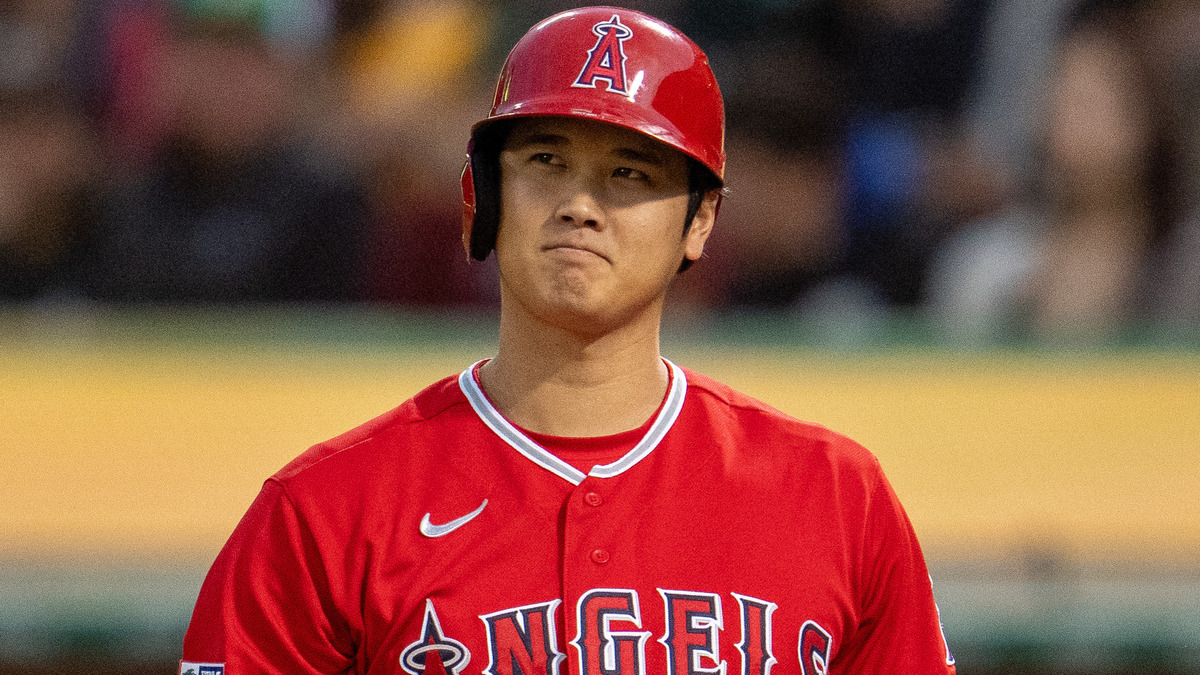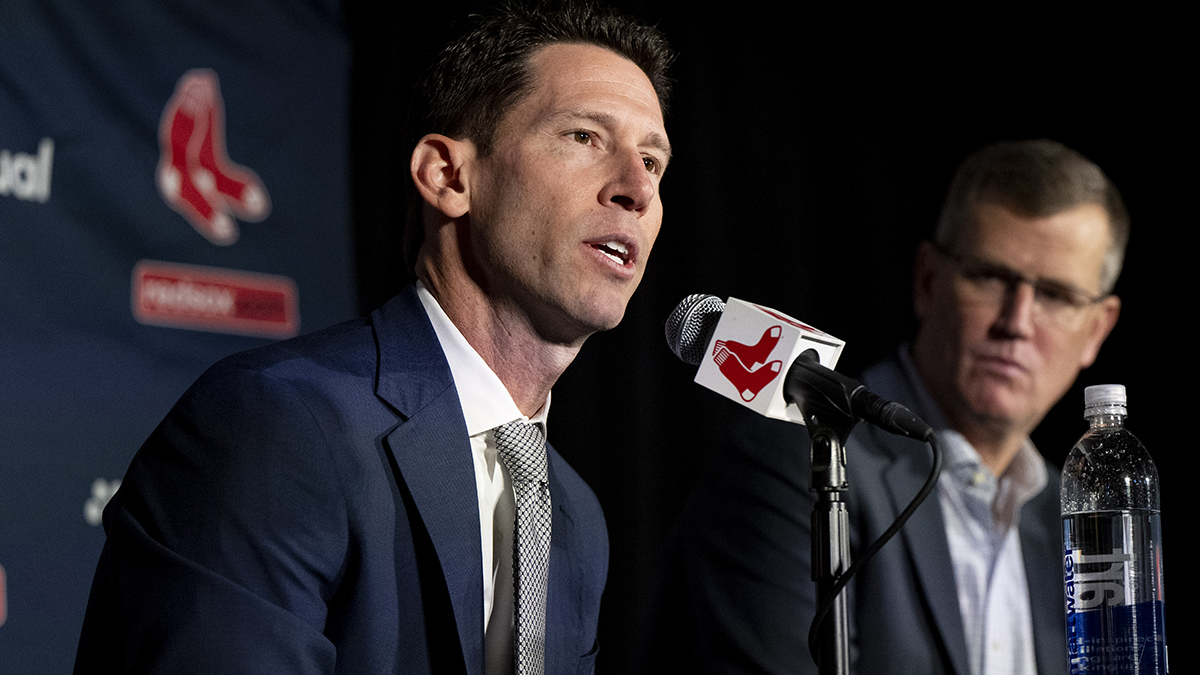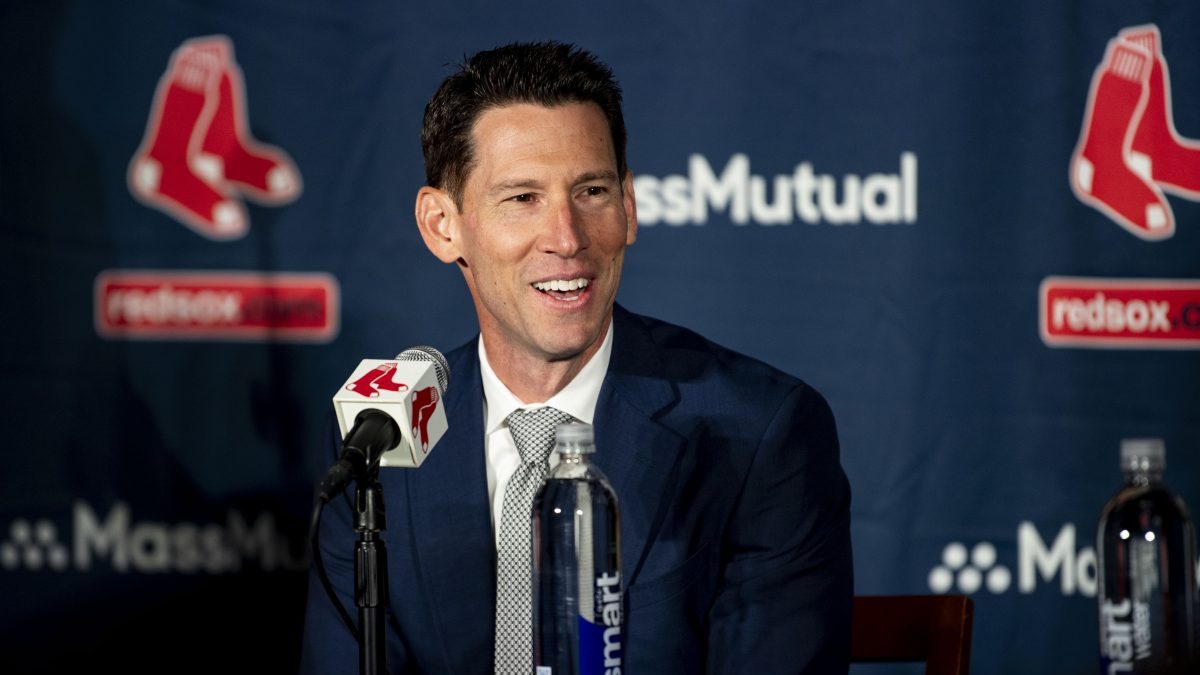Rafael Devers does not own the worst $300 million contract in baseball. Yankees DH Giancarlo Stanton sees to that, and the injury-prone slugger will be on New York's books through 2027. Woof.
Were it not for Stanton, however, that dubious distinction might belong to Devers. Former chief baseball officer Chaim Bloom trumpeted his $313.5 million deal as the start of something "awesome," but after a forgettable year one, there are reasons to grow even more concerned moving forward.
No one wants to hear this, because after sending Mookie Betts out the door and then watching Xander Bogaerts follow, the Red Sox couldn't afford to lose another homegrown star. Devers exploited their desperation with a 10-year deal that was generally well-received because it offered one data point opposing the notion that owner John Henry had tossed his checkbook over the side of his yacht.
Stay in the game with the latest updates on your beloved Boston sports teams! Sign up here for our All Access Daily newsletter.
But signing Devers to such a huge deal always involved risk, and new baseball boss Craig Breslow is undoubtedly calculating the potential downsides as he devises a long-term vision for the direction of the franchise.
And make no mistake, there are downsides. Devers is big and barrel-chested, and he's no guarantee to stay healthy, even in his 20s. He's capable of defensive consistency in bursts, but over the course of a full season generally grades as a trainwreck. That means he must derive his value from his bat, and outside of a breakout 2019, he has profiled only as solidly above average when his paycheck demands transcendence.
MORE RED SOX COVERAGE
If it feels like Devers didn't have a big hit last year, it's because that's basically true. Whereas stopgap veteran Justin Turner carried the offense for stretches, Devers never found that otherworldly zone where he hammers everything and puts the club on his back, such as during a 34-RBI July in 2019.
Even when he homered 10 times in April, Devers felt out of rhythm, and he'd be the first to admit his 33 homers and 100 RBIs represented mostly empty calories. His underlying numbers remained strong -- he ranked among the league leaders for a third straight year in most of the "expected" categories -- but he's paid for actual production, not the theoretical kind.
Making matters worse is his wretched defense, which could force a full-time move to DH. He led American League third basemen in errors for a record sixth straight year and at his nadir looked so lost that he buried his head in his glove on the field, a terrible look for an ostensible leader. His continued struggles call into question his long-term viability at the position, because at some point you're no longer a candidate to improve. You're simply unreliable.
The Red Sox have so religiously touted Devers as the centerpiece of their next great team -- chairman Tom Werner recently cited him to dispute the notion they lack star power -- it's easy to stop questioning the supposition. But is he really a franchise player, or is he simply paid like one?
Of the 12 players making at least $300 million, the only two who rate lower than Devers (11.6) in WAR over the last three years are Mike Trout (11.0) and Stanton (3.0 … again, woof).
In the case of Trout, there are extenuating circumstances in the form of his constant injuries. Despite playing barely half as many games as Devers, he has provided the Angels with virtually equivalent production.
Still, health matters, so Devers deserves credit for playing through nagging injuries in 2022 and averaging 150 games since 2021. He still ranks well behind WAR leaders Aaron Judge (21.1), Betts (18.7), and Yankees ace Gerrit Cole (15.6). He also trails San Diego's Manny Machado (14.8), Philly's Trea Turner (14.7), Francisco Lindor (14.6) of the Mets, and the troubled-yet-talented Fernando Tatis (12.1) of the Padres.
Two other players near him on the list have boosted their resume in other ways. Phillies superstar Bryce Harper (12.0) is the heart and soul not just of his team, but his city, with a monster postseason resume to match. He's a Philadelphia icon, with his long hair flowing beneath a trademark bandana, the perfect combination of talent and grit.
He's this generation's Charlie Hustle, and he's not only a game-changing talent, he's a culture-changing one, too. It's enough to keep the two-time MVP valuable despite a full-time move to first base following elbow surgery.
Then there's World Series MVP Corey Seager (14.4). He looked like a potential bust during his Texas debut in 2022, but he bounced back as an all-around star this year before taking his game to another level in October and leading the Rangers to their first championship.
Seager is now a two-time World Series MVP, putting him in an exclusive club alongside Hall of Famers Sandy Koufax, Reggie Jackson, and Bob Gibson. He's a franchise player, and a Gold Glove finalist at the game's most important position. The Rangers paid him to spearhead a title run, and he delivered in Year 2.
Devers simply isn't that kind of guy. He's a complementary star. The Red Sox still refer to him as a kid, even though he's entering his eighth season. There's no questioning his work ethic or desire, but I wonder about his ceiling. He's in the top one percent of really good when the Red Sox need him to be great.



